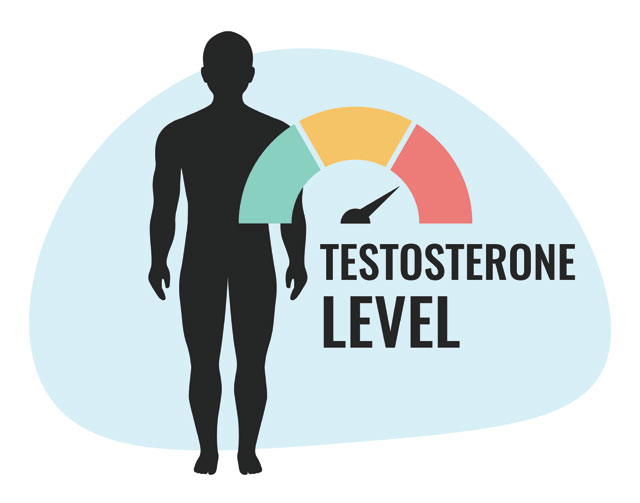Testosterone in thyroid diseases – Testosterone is a crucial hormone for maintaining both physical and mental well-being. It impacts one’s vitality, disposition, and libido and is crucial for muscle development and repair. Changes in testosterone levels may be caused by a number of factors, including aging, lifestyle choices, and medical disorders such as thyroid dysfunction. Fatigue, a drop in libido, and sadness are just a few of the symptoms that can result from testosterone levels being too low. The symptoms of thyroid illness can be mitigated and general health enhanced by learning how to increase testosterone production.
Understanding Thyroid Disorders
The thyroid gland, a key component of the endocrine system, is frequently affected by illness. Some of the symptoms it might bring on are a lack of energy, gaining weight, having dry skin, and even losing your hair. The result can be elevated testosterone levels in certain men. One of the most prevalent forms of thyroid illness, hypothyroidism, is linked to low testosterone levels.
Signs Your Testosterone Levels Are Too Low
Fatigue, low libido, and sadness are just some of the side effects of low testosterone levels. Gaining weight, losing muscle, and having trouble focusing are also possible. Sleeplessness, anger, and the inability to focus are just some of the negative side effects that can develop from low testosterone levels.
Low Testosterone in Thyroid Diseases
Low levels of testosterone can result from a number of factors related to thyroid illness. The most prevalent kind of thyroid dysfunction, known as hypothyroidism, causes low testosterone levels. Since low amounts of hormones produced by the thyroid, which govern the body’s metabolism, might result in low testosterone levels, the thyroid is considered a risk factor for low testosterone. Low testosterone levels can also be brought on by levothyroxine and other drugs used to treat thyroid illness.
How to Raise Testosterone Through Diet and Nutrition
With thyroid illness, increasing testosterone levels is a matter of eating well. Increased testosterone levels can be achieved by eating a diet rich in protein, healthy fats, and complex carbs. Likewise, eating zinc-rich foods like oysters, steak, and pumpkin seeds can aid in sustaining testosterone synthesis. Consuming too much processed food, sugar, or refined carbs can also hinder testosterone production and should be avoided if at all possible.
Boosting Testosterone Through Exercise and Other Methods
Improved testosterone levels in men with thyroid illness are largely attributable to regular exercise. Exercises like walking, running, and swimming that target the cardiovascular system on a regular basis can boost testosterone levels. Weightlifting and other forms of resistance exercise are great for building muscle and increasing testosterone levels. The levels of testosterone in men can be raised by implementing strategies including getting enough sleep, dealing with stress, and cutting back on alcohol.
Methods of Boosting Testosterone with Pills and Herbs
Testosterone levels can be raised in men with thyroid illness with the use of a number of supplements and natural therapies. In order to boost testosterone levels, zinc, magnesium, and vitamin D are all helpful. Ashwagandha, Tribulus terrestris, and Fenugreek are just a few of the helpful plants. Supplements and herbs might have drug interactions and negative effects, so it’s best to check with your doctor first.
Drugs That Raise Testosterone Levels
Medication can be used to help elevate testosterone levels in some men. The most frequent drug used to address low testosterone levels is testosterone replacement therapy. Treatment of low testosterone levels with direct administration (through injection or topical application) can be successful. It should be taken with caution because of the possibility of unwanted side effects such as an increased risk of heart attack and stroke.
Testing for Low Testosterone and Other Symptoms
Testosterone levels, among other symptoms, need constant monitoring. Any fluctuation in symptoms, together with the results of routine blood tests, should be reported to a healthcare provider for evaluation. Because of their potential to alter testosterone levels, drugs and supplements should be tracked and changed as necessary.
Testosterone in Thyroid Diseases – Conclusion
Thyroid dysfunction is a leading source of low testosterone levels, which can have detrimental effects on one’s health and well-being. The symptoms of thyroid illness can be mitigated and general health enhanced by learning how to increase testosterone production. Boosting testosterone levels may be accomplished in a variety of ways, including by eating well, exercising frequently, and using certain supplements and drugs. Testosterone levels and other symptoms should be tracked on a regular basis, and a medical professional should be consulted before any treatment is begun.
FAQs
Being a key hormone, testosterone plays a role in maintaining both the body’s physical and mental well-being. It impacts one’s vitality, disposition, and libido and is crucial for muscle development and repair.
Symptoms of low testosterone include exhaustion, low libido, depression, weight gain, muscle loss, and an inability to focus.
Boosting testosterone levels may be accomplished in a number of ways, including but not limited to a balanced diet, regular exercise, and the use of nutritional supplements and medicinal drugs. Reducing stress and cutting back on alcohol are two other ways to increase testosterone.







